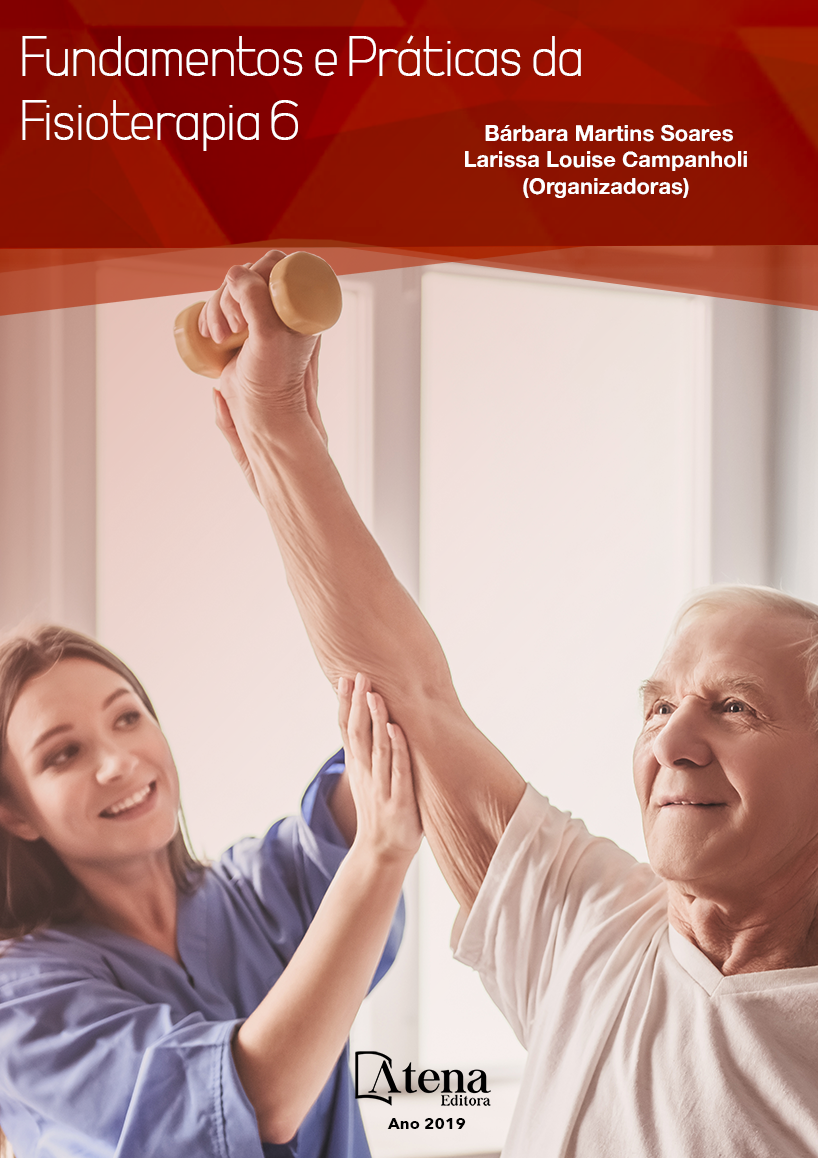
REABILITAÇÃO VESTIBULAR EM IDOSOS: PREVENINDO AS QUEDAS OCASIONADAS PELA TONTURA
sistema vestibular (SV) é um dos
sistemas do corpo humano responsável pelo
equilíbrio postural, sendo comuns alterações
neste sistema no processo de envelhecimento.
A manifestação mais relatada é a tontura,
definida como “manifestação subjetiva de
perturbação do equilíbrio postural ou perda da
noção espacial”. O objetivo deste estudo foi
analisar os efeitos da fisioterapia na reabilitação
do SV em idosos e correlacionar com a redução
de quedas ocasionados por tontura. Trata-se
de uma de revisão de literatura, onde foram
utilizados como base de dados: PUBmed
e LILACS no período de fevereiro de 2018,
empregando os descritores: Reabilitação
vestibular, Fisioterapia, Quedas, Idosos. O
envelhecimento interfere na interação entre os
sistemas componentes do equilíbrio postural
por meio do decréscimo da função do SV.
As alterações podem ocasionar dificuldades
e oferecer grande risco de quedas. Muitos
pacientes idosos que procuram a fisioterapia
relatam sofrerem quedas da própria altura
causadas por tonturas, principalmente quando
associadas a movimentos cefálicos rápidos,
isso ocorre muitas vezes por danos existentes
no SV. A reabilitação vestibular (RV) trabalha
englobando exercícios que auxiliam em três
mecanismos: adaptação, substituição sensorial
e habituação, agindo na recuperação fisiológica
através da neuroplasticidade do sistema
nervoso central. O tratamento fisioterapêutico
atua de maneira personalizada, abordando
os distúrbios cinesiológicos, combinando
exercícios específicos para diminuir os sintomas
otoneurólogicos e as limitações na capacidade
funciona.
REABILITAÇÃO VESTIBULAR EM IDOSOS: PREVENINDO AS QUEDAS OCASIONADAS PELA TONTURA
-
DOI: 10.22533/at.ed.53419070318
-
Palavras-chave: Reabilitação vestibular. Fisioterapia. Quedas. Idosos.
-
Keywords: Vestibular rehabilitation. Physiotherapy. Falls. Seniors.
-
Abstract:
The vestibular system (SV) is one of the systems of the human body
responsible for the postural balance, being common changes in this system in the
aging process. The most reported manifestation is dizziness, defined as “subjective
manifestation of postural balance disturbance or loss of spatial notion”. The objective
of this study was to analyze the effects of physiotherapy on the rehabilitation of VS in
the elderly and to correlate with the reduction of falls caused by dizziness. This is a
literature review, where they were used as a database: PUBmed and LILACS in the
period of February 2018, using the descriptors: vestibular rehabilitation, physiotherapy,
falls, elderly. Aging interferes in the interaction between the postural balance component
systems by decreasing SV function. The changes can cause difficulties and pose
a great risk of falls. Many elderly patients who seek physical therapy report falling
from their own height caused by dizziness, especially when associated with rapid
cephalic movements, this is often due to damages in the VS. Vestibular rehabilitation
(VR) works encompassing exercises that aid in three mechanisms: adaptation,
sensory substitution and habituation, acting on the physiological recovery through
neuroplasticity of the central nervous system. Physiotherapeutic treatment acts in a
personalized way, addressing kinesiological disorders, combining specific exercises to
reduce otolaryngological symptoms and limitations in functional capacity.
-
Número de páginas: 15
- Ana Karla Pereira Azevedo
- Alan Alves de Souza
- Mateus Kaled Teles Albuquerque
- Guilherme Douglas Braga de Sousa
- Paulo Fernando Machado Paredes
- Patricia da Silva Taddeo
- Leonora Oliveira Leite


